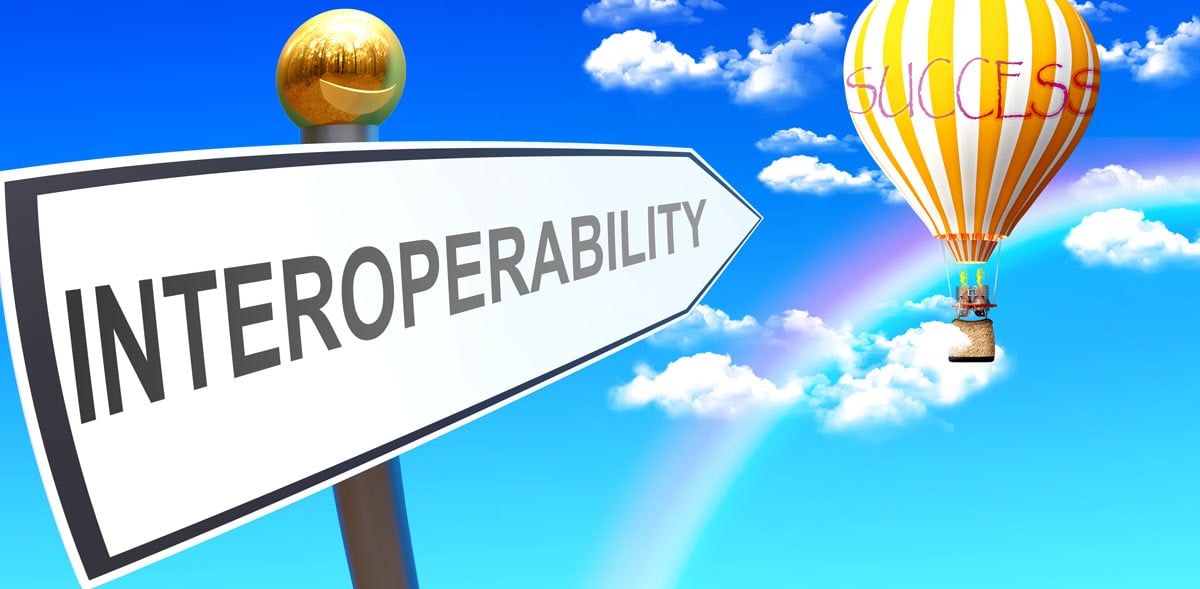A recent survey found the top three concerns of manufacturers in a post-COVID-19 world are:
- Financial Impact (71%)
- Global Recession (64%)
- Workforce and Productivity (41%)
For most manufacturers, the immediate focus is their workforce. Companies can't control the virus's impact on the world's economy, but they can address how employees will work in a post-pandemic world.
New Normal
Everyone talks about the "new normal." But what will that look like? If history is any indicator, short-term solutions in a global crisis often become long-term ways of doing business. For example, government involvement in the financial services sector began after the Great Depression. Increased security measures related to travel, internet and government oversight are still in effect long after 9/11. So what pandemic measures could become the new way of doing business years after the pandemic is over?
Employee safety guidelines are most likely to become a long-term way of doing business because they will require fundamental changes to how manufacturers operate. Without modifications, organizations could lose almost half of their manufacturing workers. Such disruptive changes are not easily cast aside when a crisis is past.
To meet social distancing requirements manufacturing floors and operations will have to change. Rolling back those changes in less than 12 to 18 months would disrupt operations and require additional investment dollars. That's why manufacturers need to look at modifications for employee safety as long-term measures rather than short-term stopgaps. They need to find ways to incorporate social distancing, limit group sizes and increase sanitation procedures that do not compromise operational efficiency or product quality.
Incorporate Social Distancing
According to the CDC, social distancing is separating individuals by a minimum of six feet. Unfortunately, manufacturing facilities were not designed for social distancing or a remote workforce. It still requires people to be physically on-site and closer than six feet. That doesn't include external suppliers or contractors that need access to facilities to provide needed service and support. Then, there's the building and equipment maintenance staff and machine operators.
The easiest way to implement social distancing is to limit the number of people in one place at the same time. For example,
- Limit non-essential visitors
- Install distance indicators
- Stagger shifts
- Alternate breaks and lunchtimes
- Add shifts
Although these suggestions may address social distancing, they do not indicate how employees are to operate. What tools will employees need to do their jobs under these new conditions? How can companies bridge the communication gap that social distancing will create? How productive will employees be?
Efficient Knowledge Transfer
How do operators know to toggle a switch when the machine panel doesn't come on? That piece of information isn't in any of the documented procedures. It's passed among employees during breaks, at lunch or at shift change. With social distancing, that exchange may not happen. If that knowledge isn't shared, how much time is lost while each operator learns the "trick" for themselves?
A knowledge management system (KMS) is designed for that situation. By creating a knowledge map, companies identify the official and unofficial routes through which information is created and shared within an organization. Using the map, businesses can begin to capture the data and information that makes up an organization's knowledge. Centralizing corporate knowledge ensures that employees can access information at any time from anywhere and on any device.
A KMS can facilitate the ongoing capture of data so that operational efficiency can be maintained. For example, machine operators add information on the job through a mobile app. Other operators access that information during their shift, which helps with productivity. The information could even be shared with maintenance staff so the equipment could be repaired quickly.
Limited Group Size
Social distancing guidelines apply to meetings with some orders limiting the size to less than ten people. For manufacturers, that can impact their productivity because the information that needs to be shared at the end of a shift or across departments can't happen efficiently. Most of the recommendations comply with the stated guidelines but do not address the impact on productivity.
- Do not have large group meetings.
- Hold multiple small-group meetings
- Eliminate shift hand-off meetings
Again, those suggestions address the safety concerns, but not operational efficiency. Exactly how many ten-person meetings are required to cover the number of workers on a single shift?
Efficient Information Transfer
How efficiently manufacturers can transmit information across an enterprise depends on where they are with digital transformation. The industry has made progress in transforming the factory floor, but digitizing the information that employees need to do their job has not always kept pace. Today, digitized information is essential to efficient operations.
- How is information transferred from one shift to the next if hand-off meetings are eliminated?
- What happens to the results of virtual troubleshooting meetings?
- How does onboarding or cross-training happen without digital tools?
Organizations need solutions such as a KMS that can move their digital transformation forward with long-term improvements in productivity.
Knowledge management systems help capture the tacit information that happens during end-of-shift meetings. It can also hold meeting results in a searchable format so critical information can be easily retrieved. When an employee searches a troubleshooting repository for a solution, downtime is reduced.
Comprehensive search capabilities are essential in environments were cross-training becomes mandatory. Retaining information on a new skill that is not frequently used is challenging. Providing employees with the ability to access the data when it is needed is crucial to maintaining an efficient operation.
Changes in sanitation guidelines will be extensive, and employees will need to be trained on these new guidelines. Companies will need to:
- Train employees on responsible safety behaviors
- Create zones to restrict employee movement
- Stagger crews to limit cross-contamination
Employers will need a way to track employee compliance, such as attending health training. They will need methods of capturing employee health data at the start of each shift. There will most likely be reporting requirements put into place.
Efficient Data Transfer
How can manufacturers meet these requirements and maintain operational efficiencies? Manufacturers will need a process to keep employees informed of changes in safety procedures and sanitation requirements. They will need a single source of information for employees to access to counter rumors and misinformation.
A KMS can hold zone maps, so employees know their zone. If the zones change, the map can be easily updated. The same applies to training materials. A centralized location makes updating easier and ensures that employees are receiving the most current information. Knowing that information is available means employees can focus on their jobs and maintain productivity during times of uncertainty.
As your organization moves towards a new normal, be sure you have the right digital tools to ensure efficient operations. Talk to us about how our knowledge management system can help.






Leave a comment